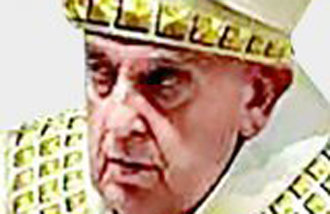Peoples Daily Cites President Rohs Remarks
Peoples Daily Cites President Rohs Remarks
Posted July. 07, 2007 03:04,
Fu Xuan, a prestigious political theorist in the early Western Jin (Xijin) era of China, once said, Illness comes in via the mouth and comes out from it. The Internet version of the People`s Daily, the mouthpiece of the Communist Party of China (CPC), wrote this in a column in its international affairs section on the speech errors and falsehoods of leaders and prestigious figures worldwide on July 5.
Recently, the former minister of defense of Japan, Fumio Kyuma, ended up resigning because of his controversial remark that, The U.S. dropping the atomic bomb was inevitable, I believe, a feature story in the newspaper.
The Peoples Daily made a summary of the speech errors and falsehoods of 15 politicians and prestigious figures worldwide, including Koreas President Roh Moo-hyun, U.S. President George W. Bush, and former French President Jacques Chirac.
The story started with President Roh. The sub-title of the article was, Rohs illness comes out of his mouth when he was ruled to have violated the election law. It reported, President Roh criticized a presidential candidate of the opposition party, and was repeatedly ruled to have violated the election law by the National Election Commission on June 18.
Former French President Jacques Chirac was called out for his remarks to reporters based on the premise of news embargos that were so controversial while he was in office. He faced strong criticism from the Arab world by saying on January 29 this year, The real threat is not Irans possession of nuclear weapons but the outflow of the nuclear technology to other countries, adding, Iran could help Egypt develop nuclear weapons. It implied, European countries may possess nuclear weapons; the Islamic world may not.
President Bush was at a loss when he confessed what he truly thought to Russian President Vladimir Putin on July 17 last year at the luncheon of the closing ceremony of the G8 Summit held at St. Petersburg, Russia, not knowing his microphone was on. President Bush said to President Putin, who has influence over Syria, Why not tell Syria`s President Bashar al-Assad to stop Hezbollah from doing such things? However, Syria did not do as the U.S. wanted, and when Israel attacked Lebanon, the U.S. had to just sit back and watch.
Former Italian Prime Minister Silvio Berlusconi is known for his speech errors as well. He was asked on September 2003 to compare Hussein and Mussolini in an interview with a British reporter. He answered, Mussolini is a generous person who did not kill anyone. He gave a holiday to Jews on exile, which created a furor among opposition party and Jewish groups. His remarks stirred further controversy on January 2002 when he said, Brothels ought to be completely legalized, and immediately after the 9-11 terror attacks, he faced castigation from the Arab world by saying, Western civilization is more sophisticated than Islamic.
Former Prime Minister Tony Blair was once in trouble because of a speech mistake. He said at the end of November last year, The Iraq War is a disaster, and ended up with a headache after facing demands from the opposition party that said, His remark was an admission of the failure of his Iraq policy.
It is Japan that was cited for the most political falsehoods, however. Japanese Foreign Minister, Aso Taro, called Taiwan a country in March last year, and faced complaints from China, so he had to apologize for his words. Hakuo Yanagisawa, the minister of Health, Labour and Welfare in Japan compared women to machines that bear children and faced criticism from womens organizations as a result.
orionha@donga.com
Headline News
- Korean president faces debate limitations unlike U.S. counterpart
- KEPCO's first quarter profits failed to meet market expectations
- Teenagers are left out of discussions about national pension
- 2 consultative bodies submit minutes regarding increasing number of medical students
- Woo Sang-hyuk's rivalry and friendship transcend borders







